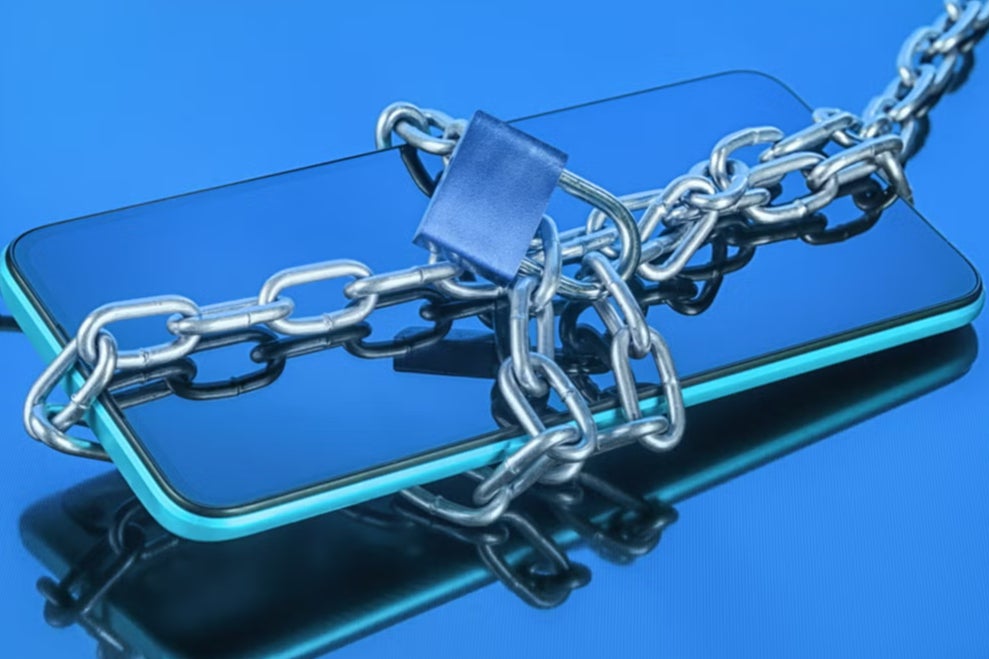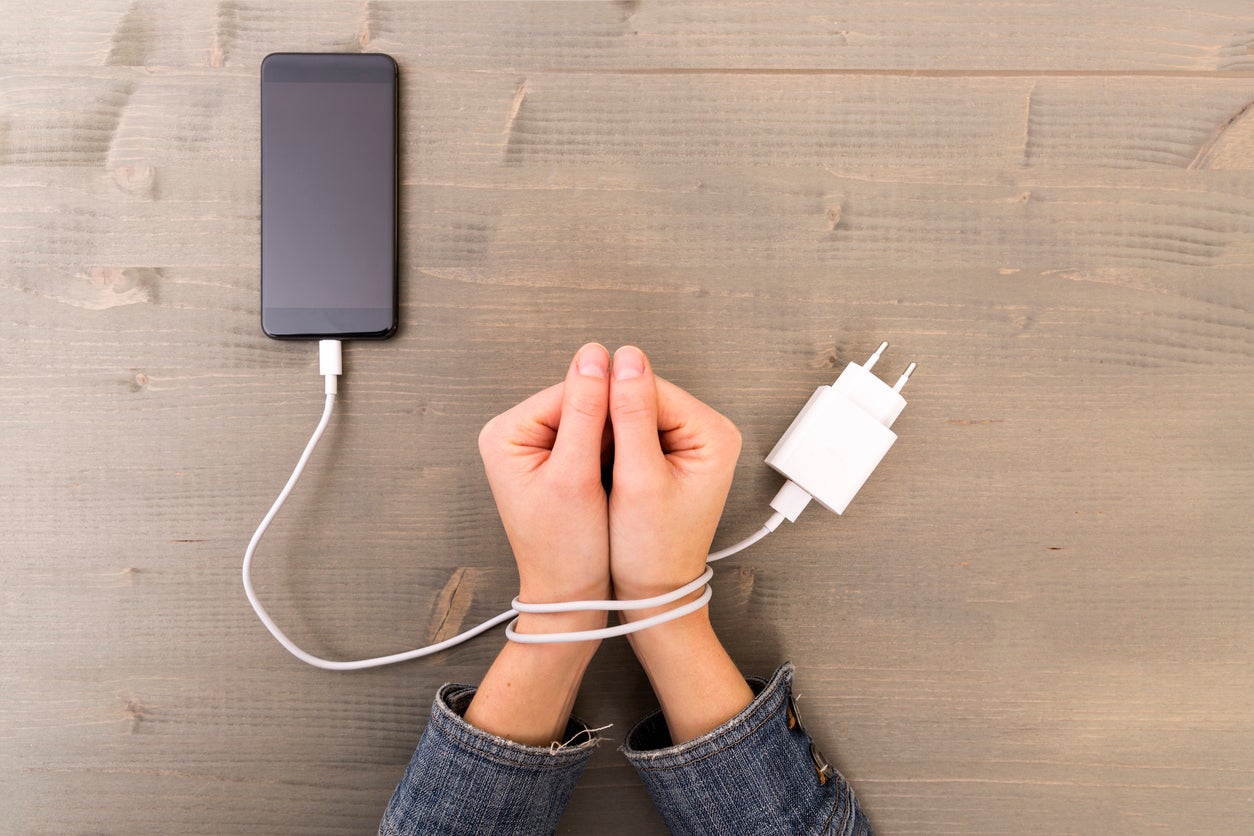The Independent's journalism is supported by our readers. When you purchase through links on our site, we may earn commission.
Ten things I learnt from spending 1,000 hours offline
Most of us would agree our relationship with our smartphones is unhealthy, but few are prepared to do anything about it. Hannah Brencher, author of ‘The Unplugged Hours’, put her money where her mouth is for an entire year; she shares the revolutionary power of doing a long-term digital detox

Your support helps us to tell the story
From reproductive rights to climate change to Big Tech, The Independent is on the ground when the story is developing. Whether it's investigating the financials of Elon Musk's pro-Trump PAC or producing our latest documentary, 'The A Word', which shines a light on the American women fighting for reproductive rights, we know how important it is to parse out the facts from the messaging.
At such a critical moment in US history, we need reporters on the ground. Your donation allows us to keep sending journalists to speak to both sides of the story.
The Independent is trusted by Americans across the entire political spectrum. And unlike many other quality news outlets, we choose not to lock Americans out of our reporting and analysis with paywalls. We believe quality journalism should be available to everyone, paid for by those who can afford it.
Your support makes all the difference.It started on my 33rd birthday. I realised I was too attached to my devices, and something needed to change – quickly. My constant connectivity and digital overload left me drained, making it impossible to truly switch off. Every attempt to disconnect failed, with me reaching for my phone just minutes later. In my mind, there was always something more to do, something else to check. My phone had become my lifeline.
On that birthday, I set a challenge for myself: to unplug from all devices for 1,000 hours over the course of a year. What started as an effort to reclaim time and become more present ended up transforming my life. Disconnecting taught me how to be happier, cultivate inner peace, and rekindle my love for life. Now, thousands of unplugged hours later, here are some of the most valuable lessons I’ve learned along the way:
There’s a difference between checking in and checking out
“I’m just checking in,” I’d reassure myself whenever I reached for my phone. But when I started disconnecting, I had to confront the truth: I wasn’t checking in; I was checking out. This journey taught me to truly check in with myself during moments of stress, anxiety, or boredom. Instead of getting lost in endless scrolling, I used my offline hours to genuinely care for myself – by taking walks, practicing mindfulness, or simply sitting outside in the sunshine.
Time is my most precious currency
Unplugging made me realise that time is the most valuable currency I possess. I can either waste it or invest it wisely in the people, projects and plans I cherish. The choice is mine – whether it’s bingeing on Netflix or an unplugged date with my husband. What’s truly remarkable is that the more I unplug, the more my time expands and holds greater value.
Presence is a superpower
We all know what it feels like to sit opposite someone who isn’t present – they’re on their phone, in two places at once. Disconnecting has revealed to me just how powerful presence can be as a rarity in our overly connected world. Offering someone my full attention is a gift – an opportunity to make them feel less alone and more empowered. Life is too challenging not to share the gift of presence whenever possible.

Boundaries can inspire others
When I talk about my unplugged hours, it often sparks a strong reaction. Many of us desire to be more present but struggle to make it happen. While I’m mindful not to push my practices onto others, my habit of unplugging and setting digital boundaries has piqued curiosity. As a result, many friends have shared their own experiences with disconnecting from technology and how going offline has positively impacted their lives too.
The grass is greener where you water it
Before I started disconnecting from technology, I spent too much time comparing myself to others. Social media often left me feeling inadequate, convinced that everyone else’s life was better than mine. But as I became more present, I realised where my time truly needed to be invested – and it wasn’t on social media. Instead, I began focusing on my relationships, work, and passions. I had lost countless hours to comparison, but each unplugged moment became an opportunity to nurture my own life instead of envying the “greener” grasses of others.
Resistance is a good thing
The first time I went offline, it was incredibly uncomfortable. But I’ve learned that good things often lie on the other side of resistance. Even now, I still feel uneasy when I turn off my phone, but I’ve come to realise that offline time revitalises me and brings peace. To ease this discomfort, I plan how I’ll spend my unplugged time. Having a clear focus makes the time pass more quickly and gives it a sense of purpose.

Wonder can be reclaimed at any age
My pursuit of instant gratification had dulled my sense of wonder, which somehow slipped away unnoticed. But as I spent more time being present with my little girl, I began to see the world through her eyes, filled with wonder. I started noticing the richness of daily life that had been there all along. I cultivated more curiosity and gratitude, lived with more questions, and resisted the urge to know everything instantly. I allowed myself to be caught up in the beauty of not having all the answers.
It’s OK to just be
The first time I unplugged, I was struck by an uncomfortable question: “What do I do with my hands?” I had become so accustomed to constant activity that stillness felt foreign. But through disconnecting, I began to embrace simply “being”. I practiced stillness, taking a few moments each day to do nothing at all. Those moments didn’t mean I was lazy or unproductive; they reminded me to just breathe and remember that I am more than the tasks I complete. My life is richer than just a checklist.
There’s more to life than momentum
Through unplugging, I’ve learned to slow down and move at a more sustainable pace
There are times and seasons for momentum, but much of the always-on mentality I once lived by stemmed from never going offline. I was always moving toward the next thing, thinking it gave me purpose and worth. Through unplugging, I’ve learned to slow down and move at a more sustainable pace. I’ve been challenged and liberated to monotask, to go slowly, and to embrace the process rather than just the finished product.
Savouring is a practice
The practice of powering down taught me to savour moments without documenting or sharing them. While sharing life’s milestones and moments can be rewarding, there’s something beautiful about learning to be fully present in a moment without feeling the need to share it. Savouring is a practice, but it’s worthwhile. I’m savouring the sounds, the people, the milestones, and the moments that will never happen quite the same way again.
‘The Unplugged Hours’ is out on 17 September and can be pre-ordered here
Join our commenting forum
Join thought-provoking conversations, follow other Independent readers and see their replies
Comments